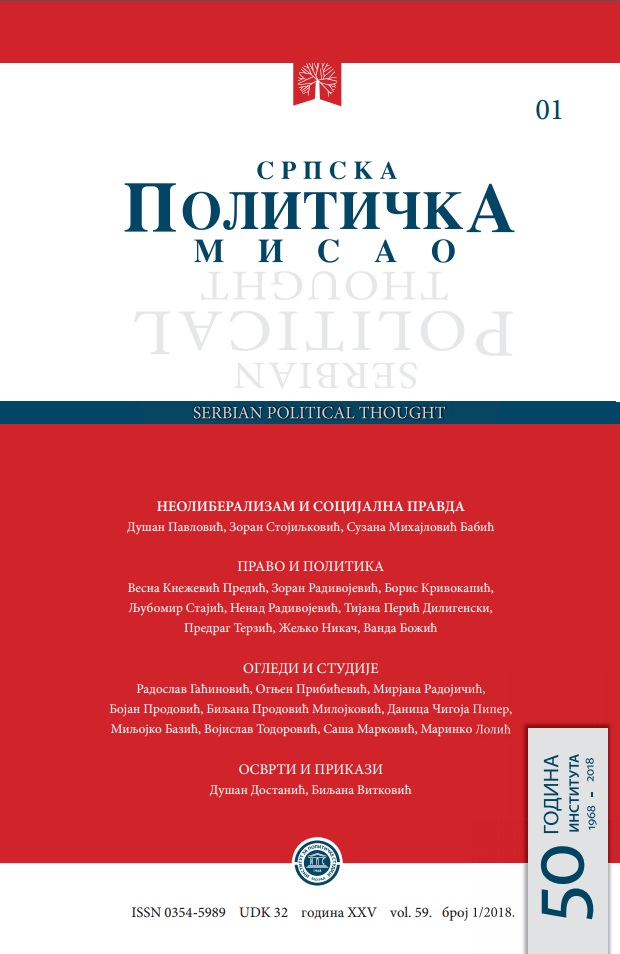Неолиберална заблуда 26 година касније: несавршеност тржишта и улога државе у транзицији у Источној Европи после 1989. године
Neoliberal Fallacy 26 Years on: Market Failures and the Role of the State in the Eastern Europe Transition after 1989
Author(s): Dušan PavlovićSubject(s): Economic history, Labor relations, Economic development
Published by: Институт за политичке студије
Keywords: neoliberalism; market failures; political failures; principal-agent model; supply-side economics
Summary/Abstract: Is the neoliberal economic policy applicable in East and Central Europe after the breakdown of communism in 1989? The first part of the article defines neoliberalism as a system of market allocation of resources, the domination of private property, personal initiative for exchange, and the minimal state. This definition is derived from the two cases of neoliberal reforms in the US and the UK in the 1980s. The second part discusses market imperfections by considering the government solution for the principal-agent problem created by information asymmerty. Since the state intevention itself suffers from political failures resulting in inefficient allocation, it can be justified only if it offers an institutional design that solves the principal-agent problem and political failures.
Journal: Српска политичка мисао
- Issue Year: 2018
- Issue No: 1
- Page Range: 9-40
- Page Count: 32
- Language: Serbian

